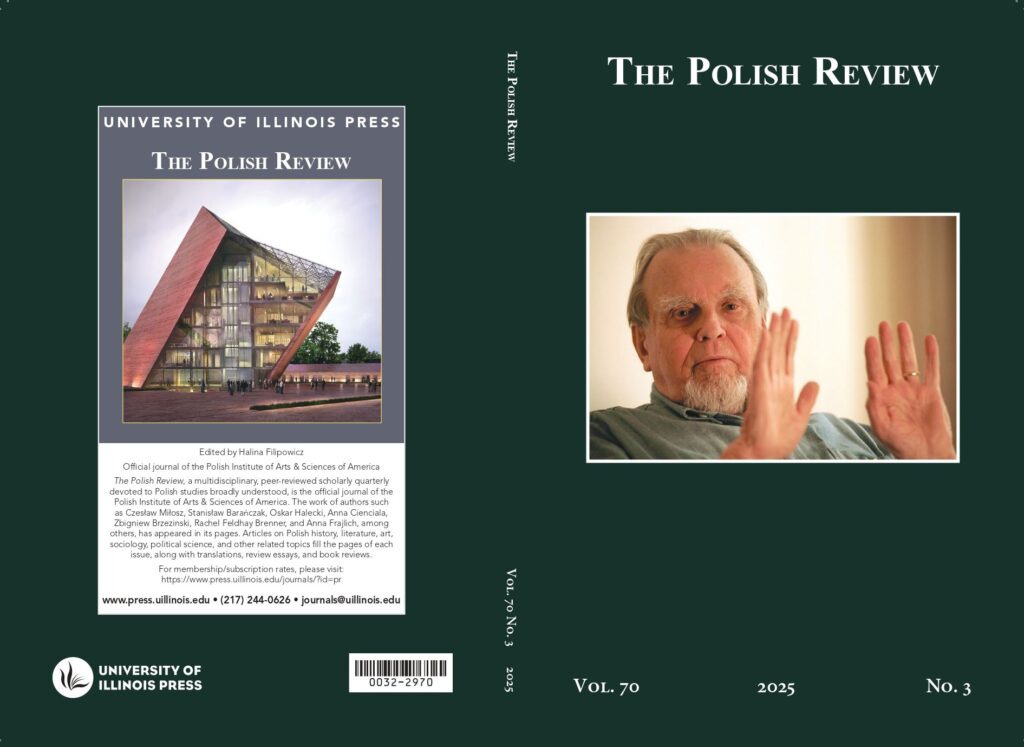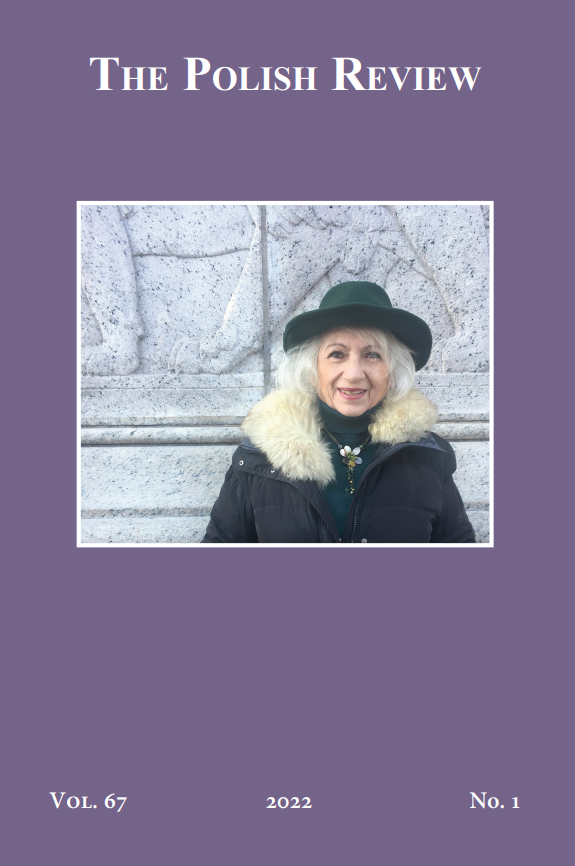SPECIAL ISSUE––CZESŁAW MIŁOSZ, OUR CONTEMPORARY
PIASA Latest News about us MEMBERSHIP CONFERENCES AWARDS PUBLICATIONS current events WEBINARS CONTACT CZESŁAW MIŁOSZ, OUR CONTEMPORARY Guest-edited by Marek Bernacki (University of Bielsko-Biala) and Gerard T. Kapolka (Independent Scholar) Even before winning the Nobel Prize for Literature in 1980, Czesław Miłosz had established himself as one of the leading poets in Poland and the world at large. He was also an accomplished translator, novelist, and essayist who taught Slavic literature for many years. Entitled “Czesław Miłosz, Our Contemporary,” this special issue of The Polish Review offers a multifaceted collection of articles that examine Miłosz’s works and life. Contributions range from discussions of Miłosz’s poetic craft and the philosophical underpinnings of his worldview to explorations of his goals for poetry and art, how he used imagery in his works, and the celebrated musicality of his verse. Topics include Miłosz’s concept of “objective poetry” in the collection A Book of Luminous Things; the construction of the poems “Pory roku” [Seasons] and “Późna starość” [Late old age]; Miłosz’s fascination with Manichaean and Gnostic ideas and Darwin’s and Hegel’s influence on his thought; Miłosz’s treatment of animals in both his prose and poetry; and the inspiration for the ode “My Homeland, Europe” and possible reasons Miłosz left it unpublished in his lifetime. The special issue closes with two review essays on recent books about Miłosz. Contributors: Mateusz Antoniuk, Paweł Bem, Anna Bergiel, Marek Bernacki, Irena Grudzińska Gross, Gerard T. Kapolka, Zbigniew Kaźmierczyk, Michał Paweł Markowski, and Łukasz Tischner
SPECIAL ISSUE––CZESŁAW MIŁOSZ, OUR CONTEMPORARY Read More »

